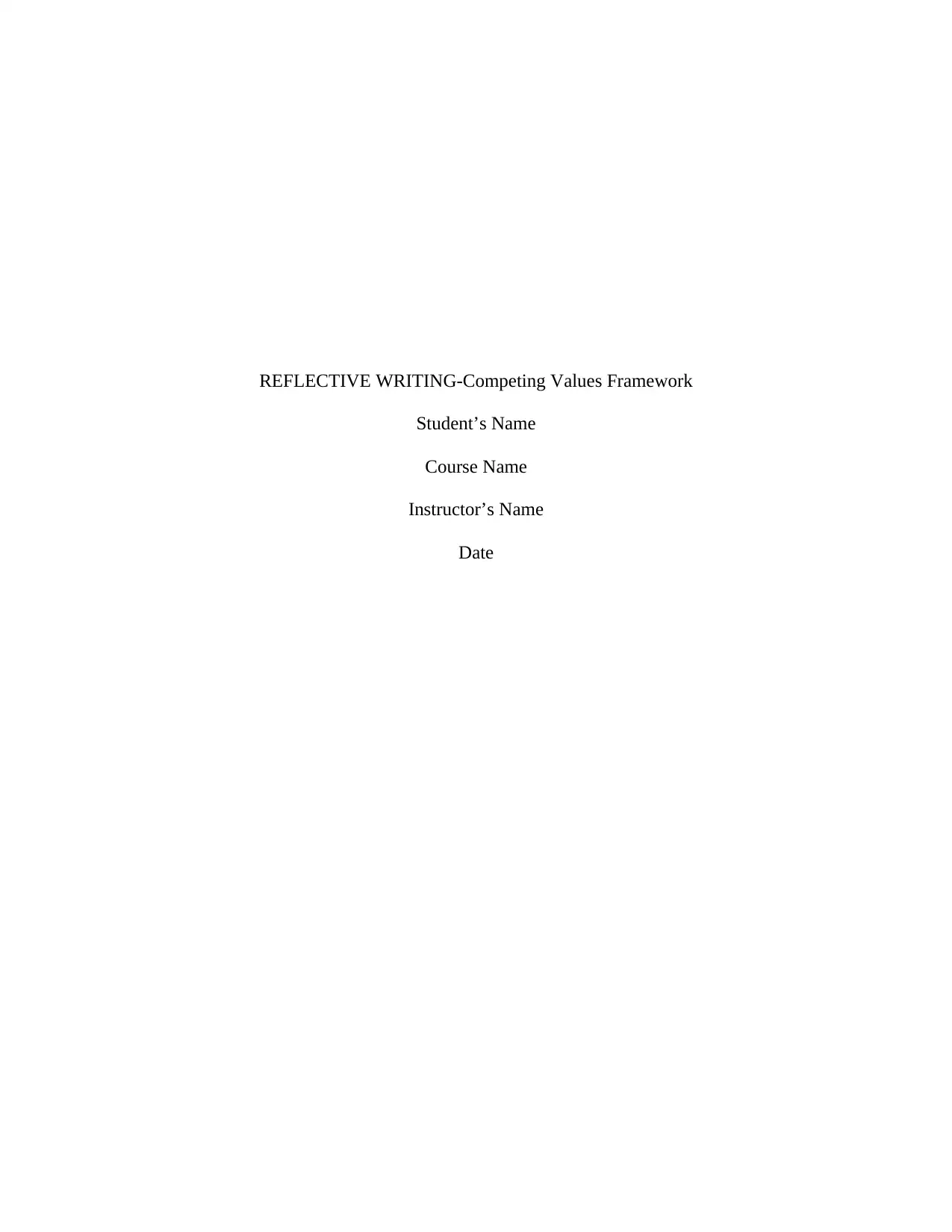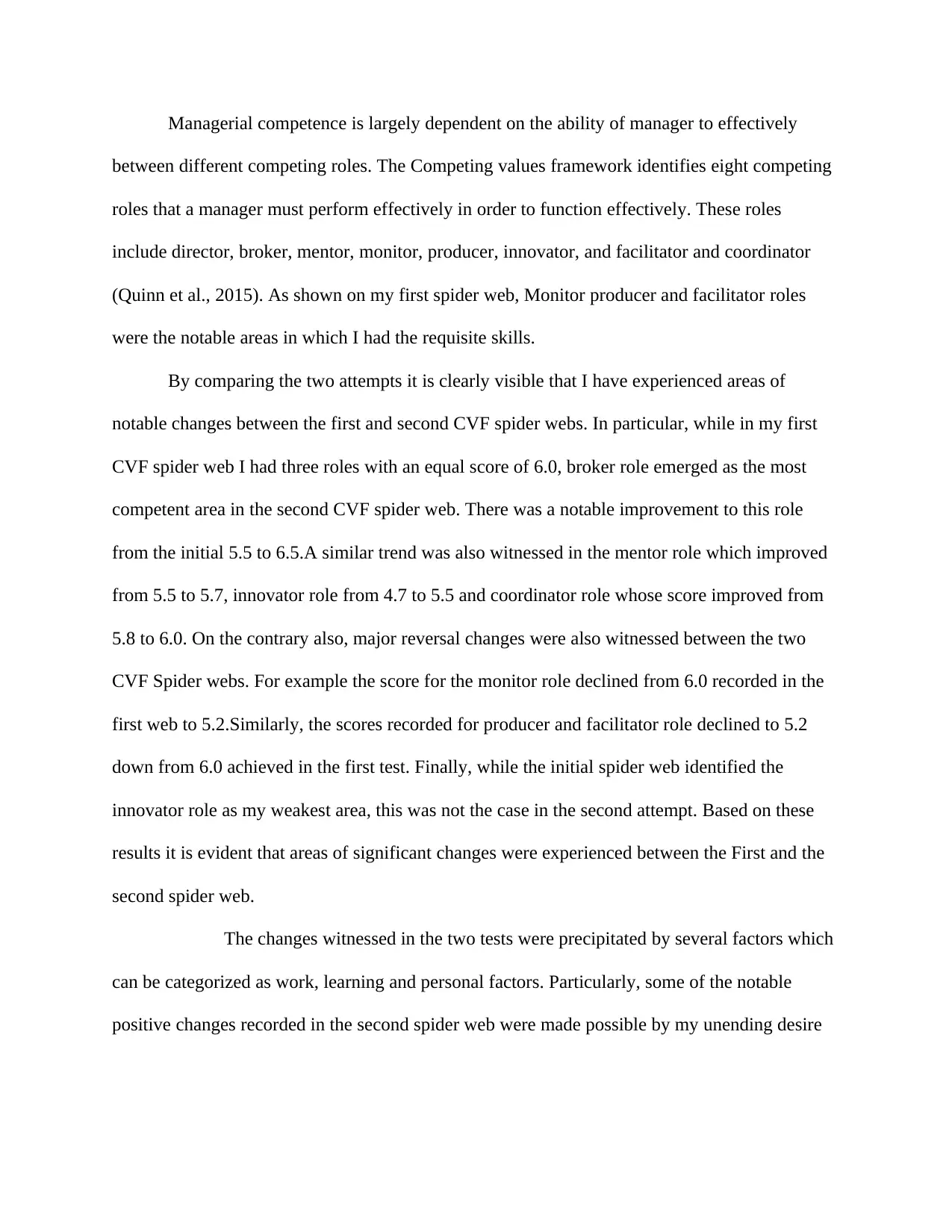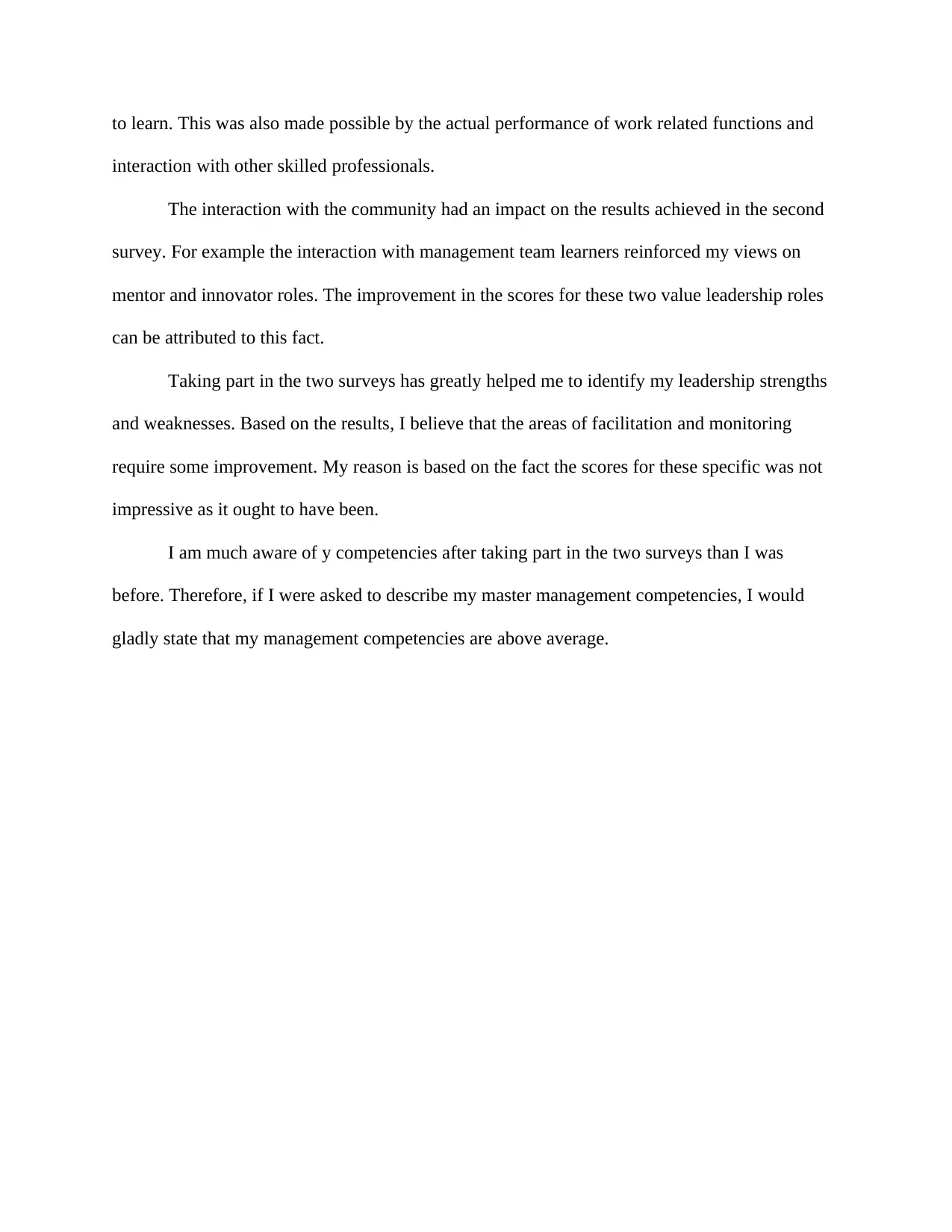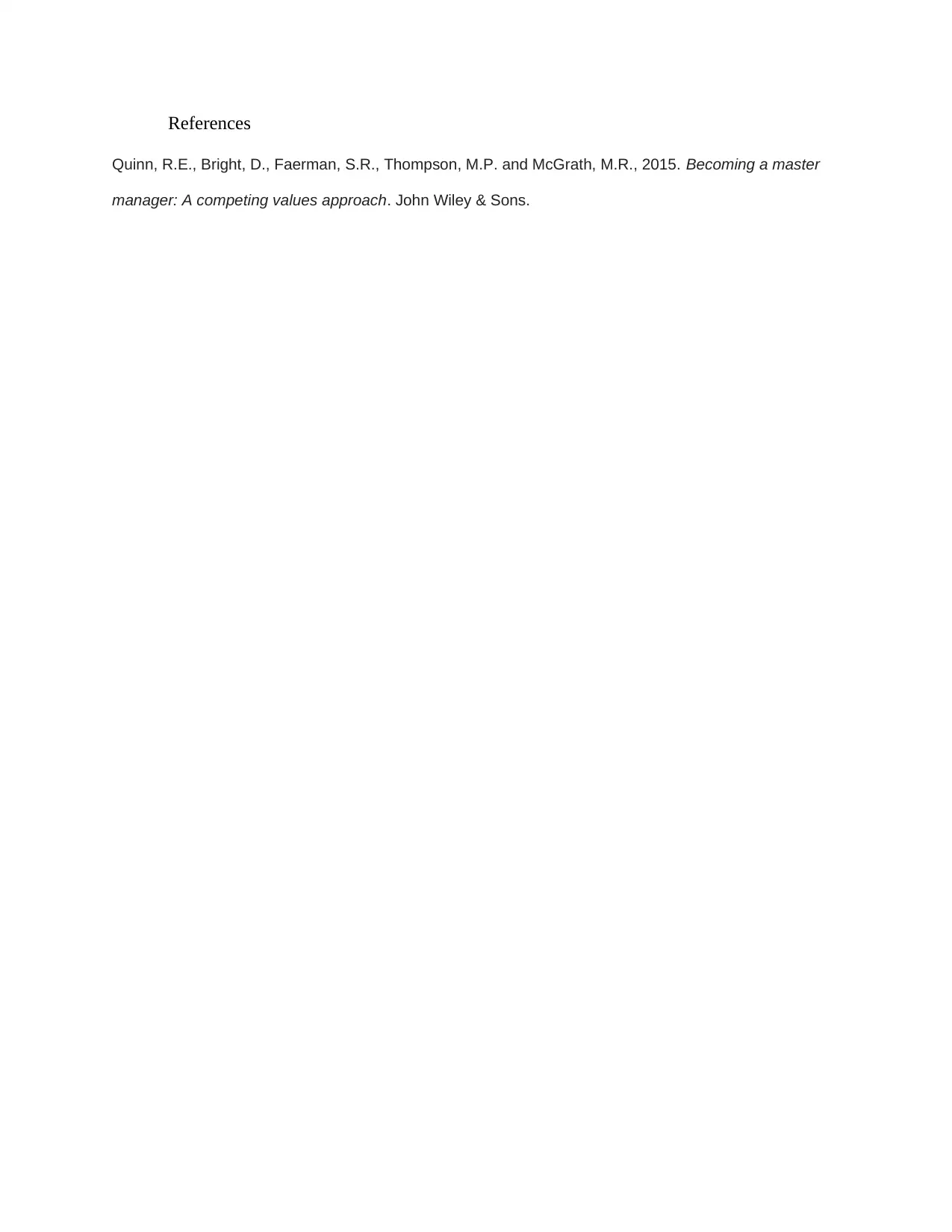Reflective Writing: CVF Analysis and Managerial Competencies, MKT01097
VerifiedAdded on 2022/08/12
|4
|580
|24
Journal and Reflective Writing
AI Summary
This reflective writing assignment analyzes a student's self-assessment using the Competing Values Framework (CVF). The assignment compares two "spiderweb" profiles, highlighting changes in perceived managerial competencies across eight roles: director, broker, mentor, monitor, producer, innovator, facilitator, and coordinator. The student reflects on factors influencing these changes, including work, learning, and personal experiences. The analysis identifies strengths and weaknesses in leadership skills, particularly in facilitation and monitoring. The student concludes with an above-average self-assessment of their managerial competencies and provides a reference to Quinn et al., 2015, illustrating the application of CVF theory. The assignment demonstrates the student's ability to reflect on their development and apply theoretical frameworks to their personal growth.
1 out of 4











![[object Object]](/_next/static/media/star-bottom.7253800d.svg)